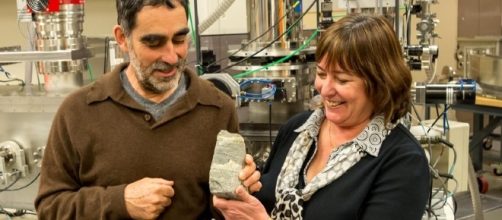Researchers find 2.7 billion-year-old samples of the rocks. They discover traces in Canada and suggest that our Earth is about 4.6 billion years old. Experts at the University Of Ottawa believe that Earth’s estimated age is 4.6 billion years, and our Earth's original crust remained in place.
More samples to be collected
Scientists will collect more samples from the Canadian Shield to prove that Earth’s crust survived the formation of the continental features. Previously, they collected samples of rocks in Canada and the US, and say that these contain bits of crust that are more than 4.5 billion years old.
Researchers believe that our Earth is about 4.6 billion years old, and they will carry out several experiments to prove this point. Previously, researchers analyzed that the isotope ratio of samarium rocks varies from one region to another. For this, they collected samples from the Superior Province. Scientists reveal that the samples are composed of sulfate, and formed through the recycling of sulphite-rich rocks.
The area of northern Quebec
Jonathan O’Neil at the University of Ottawa reveals that he will soon collect samples from other parts of the country. He aims to conduct an experiment to prove that Earth’s crust is formed due to unusual geologic activities. However, they fail to provide evidence about the characteristics of the geologic activities.
Researchers will use specific isotopes in this study and believe that the isotope ratio of samarium rocks in the Superior Province is far different from the isotope ratio of samarium rocks in the Great Lakes. Professor Jonathan will collect more samples, and aims to describe how the continents formed. According to O’Neil, the findings will tell the exact age of our Earth. Scientists need more time and further research to prove this point. They reveal that the Earth has a complicated history, and the rocks are very old. A lot of information has been erased, so scientists will find out how the rocks formed. Professor Jonathan will soon provide evidence of his research.

